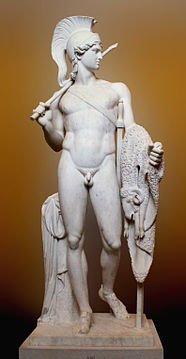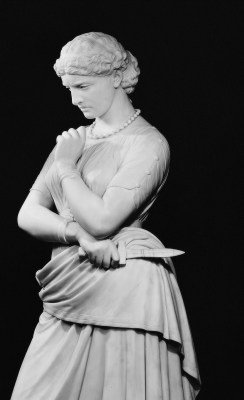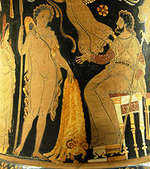
Alcinous
Alcinous was the son of Nausithous or Phaeax in Greek mythology, husband of Arete, and father of Nausicaa, Halius, Clytoneus, and Laodamas.
In the myth of Jason and the Argonauts, Alcinous and Arete lived in the island of Drepane. They were visited by the group of heroes on their way back from the mythical land of Colchis. Alcinous accepted them hospitably and catered for them. The Colchian army, who chased the Argonauts for stealing the Golden Fleece, arrived in Drepane shortly afterwards and demanded from Alcinous to hand them over Medea, the daughter of the king of Colchis, who had followed Jason. Alcinous said that he would give her if she was still a virgin; otherwise, he would consider her wife of Jason and would protect the couple. As a result, the Colchian army had to retreat and went back home, while the Argonauts left the island homebound.
Alcinous was also mentioned by Homer in his epic Odyssesy as the ruler of the Phaiacians, with his wife Arete. They had five sons and one daughter, Nausicaa. Homer extensively described the island of Scheria where Alcinous ruled, along with the way Odysseus was treated, and all the stories that he recounted to the king.
See Also: Nausicaa, Jason, Argonauts, Golden Fleece, Medea, Odysseus
Alcinous Q&A
Link/Cite Alcinous Page
Written by: The Editors of GreekMythology.com. GreekMythology.com editors write, review and revise subject areas in which they have extensive knowledge based on their working experience or advanced studies.
For MLA style citation use: GreekMythology.com, The Editors of Website. "Alcinous". GreekMythology.com Website, 17 Apr. 2016, https://www.greekmythology.com/Myths/Mortals/Alcinous/alcinous.html. Accessed 26 April 2024.






